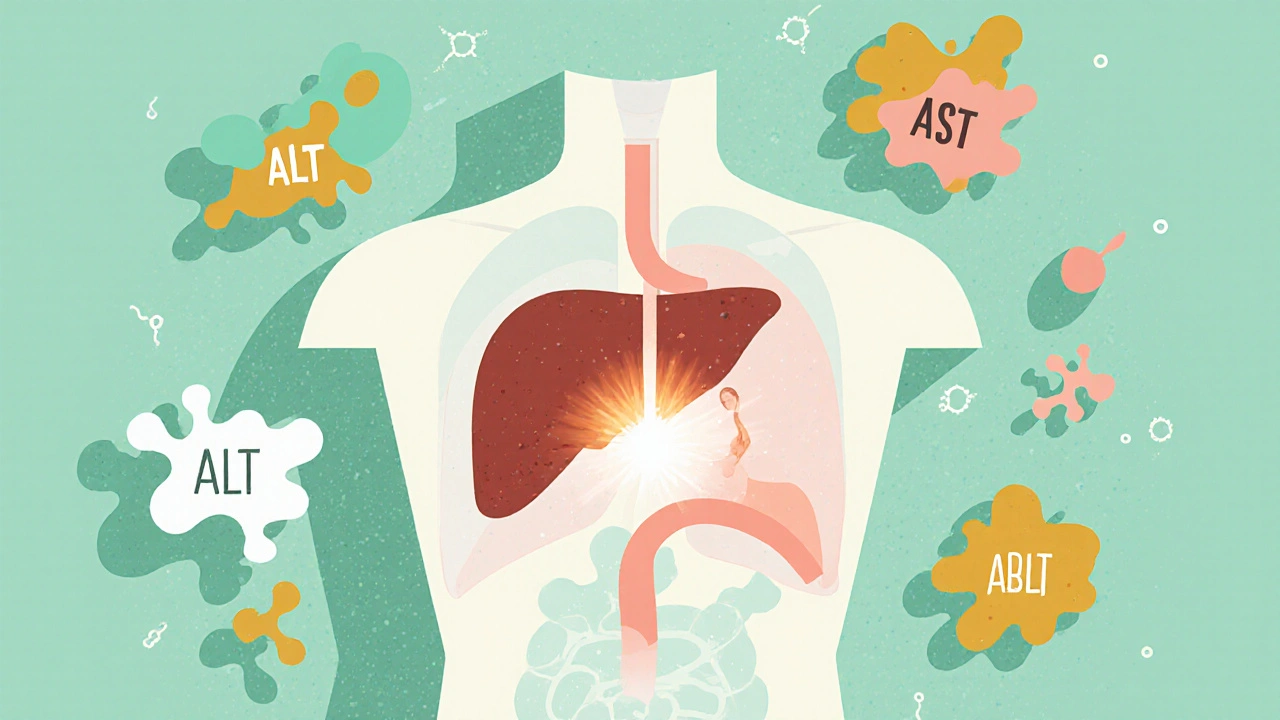Liver Function Tests: What They Reveal and Why They Matter
When your doctor orders liver function tests, a group of blood tests that measure enzymes, proteins, and substances made by the liver. Also known as LFTs, they’re one of the most common ways to check if your liver is working right. It’s not just about checking for alcohol damage or hepatitis—these tests can catch problems long before you feel sick.
Key parts of the test include ALT, alanine aminotransferase, an enzyme mostly found in the liver that leaks into the blood when liver cells are damaged, and AST, aspartate aminotransferase, which shows up in the liver but also in muscles and the heart. High ALT usually points straight to liver trouble. High AST? Could be liver, could be something else. Then there’s bilirubin, a yellow pigment your liver processes from old red blood cells. If it builds up, your skin or eyes turn yellow—that’s jaundice, and it’s a red flag.
These tests don’t tell you the exact cause, but they show if something’s wrong. A fatty liver from weight gain? High ALT and AST. A bile duct blockage? Rising bilirubin and alkaline phosphatase. Medications like statins or acetaminophen? Liver enzymes might spike. Even something as simple as a bad night’s sleep or intense workout can nudge numbers up a bit. That’s why doctors look at the whole picture—not just one number.
You don’t need to be sick to get tested. Routine checkups, managing diabetes, taking long-term meds, or even just wanting to know your body’s baseline—liver function tests give you real data. They’re not glamorous, but they’re one of the quiet heroes of preventive care. If your results are off, it doesn’t mean disaster. It means it’s time to ask questions, adjust habits, or dig deeper. And that’s the whole point.
Below, you’ll find clear, no-nonsense guides on how these tests work, what the numbers really mean, and how they connect to real-life health choices—from medications to lifestyle changes. No fluff. Just what you need to understand your results and take smart steps forward.

Liver Function Tests Explained: ALT, AST, Bilirubin, and What They Really Mean
Understand what ALT, AST, and bilirubin levels mean in liver function tests. Learn how patterns, not single numbers, reveal liver damage, fatty liver, alcohol injury, or bile blockage.
